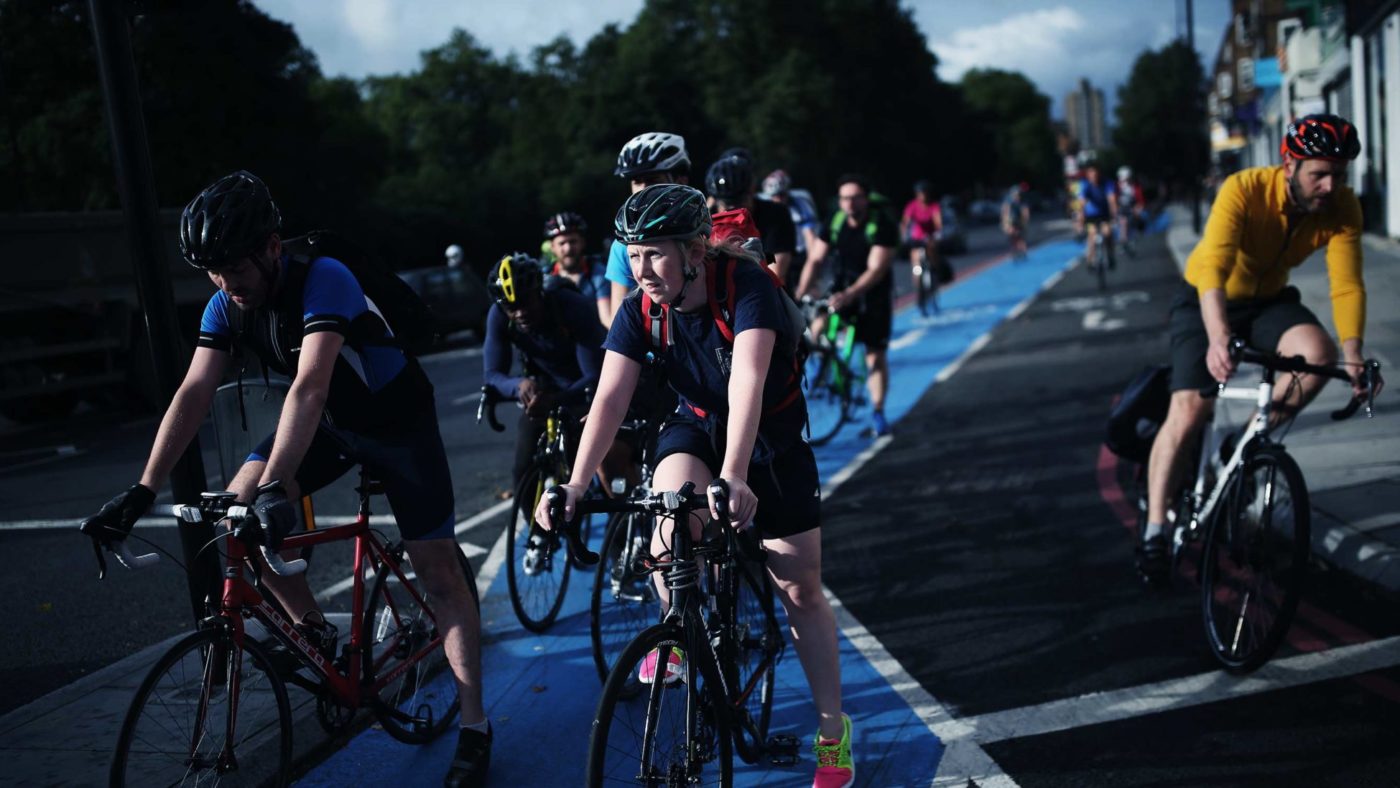CapX readers may know that the Centre for Policy Studies is running a competition challenging politicians to come up with policy ideas to save money rather than just spending it. It came on the heels of the Prime Minister’s announcement that the NHS would be handed a further £20 billion by 2023/24. Despite couching it as a ‘Brexit dividend’, independent factcheckers FullFact have warned that any money saved from our current EU payments will be taken up by other Brexit costs.
One simple thing that the government could do that would save the NHS very large sums of money, as well as generating other benefits, would be to encourage ‘active transport’, namely getting more people to walk and cycle. Researchers from the Universities of Oxford and Bath have shown that air pollution from cars and vans end up costing nearly £6 billion a year, more than the extra cash the PM has pledged for the health service.
They calculated that the health cost for an average car in inner London was nearly £8,000 over the vehicle’s lifetime. It’s no wonder that active transport was something Jeremy Hunt was strongly in favour of during his time as Health Secretary.
The problem of air pollution has got so bad the World Health Organisation is holding its first global summit on the issue this week. London’s air is notoriously bad, with parts of the city even worse than Beijing for a time last year. But even outside the capital, 43 cities in the UK are in breach of World Health Organisation guidelines for air quality. And even when the air pollution forces people to the doctor there is no escape; a study last week from the British Lung Foundation revealed that 2,200 GP surgeries and 248 hospitals are in areas that breach WHO limits.
Not only does toxic air contribute to a host of ailments including asthma, heart disease, lung cancer, reduced intelligence, Alzheimer’s and dementia, it’s even been linked to higher crime rates. A 10-point rise in air pollution across London and its boroughs increased the rate of petty crime by 0.9 per cent. It is believed that poor quality air can increase the stress hormone, cortisol, leading to a spike in criminal activity. Researchers in the US assessing FBI data for more than 9,000 cities over a nine-year period, found that even after accounting for differences in police numbers and poverty rates, areas with dirtier air saw higher than average levels of crime.
One simple policy to help this situation and save the health service cash would be to get zero emission cars onto our roads more quickly. Currently the Government have set the date at 2040 for new petrol and diesel cars to be phased out. However other countries have much more ambitious targets with Israel, Germany, Ireland and the Netherlands aiming for 2030, Norway for 2025 and Austria for 2020. A poll this month by the AA found that nearly a quarter of motorists were already interested in switching to electric cars. Bringing the 2040 target forward to 2030 in line with other countries would not only improve air quality, it would also accelerate electric vehicle development in the UK.
But the real savings for the NHS are to be found by replacing sedentary car driving with walking and cycling. Replacing just one in four car journeys in urban areas with walking or cycling could save more than £1.1 billion a year in health damage costs according to the researchers in Oxford and Bath. Currently 30 per cent of journeys under one kilometre are made in cars. Getting people out of their cars not only stops them creating fumes it also prevents them from breathing them; although it’s counterintuitive, in London car drivers are exposed to eight times more air pollution than cyclists taking the same journey.
And what better time to promote cycling than the year when Britain became the first country in history to have three different riders win cycling’s three Grand Tours. One assumes that Theresa May’s Brexit government would want to build on the efforts of Geraint Thomas, Chris Froome and Simon Yates bringing home the Tour de France, Giro d’Italia and Vuelta a España in a sport dominated for decades by Italians, Spaniards and Belgians. Sadly, although British cyclists are winning plaudits, Britain’s cycling infrastructure lags behind most of our European neighbours, which is partly why the UK is the most obese nation in Western Europe.
British cycling legend-turned-entrepreneur, Chris Boardman, is now Manchester’s cycling tsar. The former world champion has criticised London Mayor Sadiq Khan for not building on the progress made by his predecessor Boris Johnson to promote more active transport. In particular he regretted how Johnson’s cycling commissioner, Andrew Gilligan, had not been consulted by the new administration: “I would hope this wasn’t a party political thing,” he told the London Assembly earlier this year. “We plan to use his knowledge in Manchester.”
Ensuring that infrastructure planning caters for, and encourages, cycling would not only make our towns and cities more pleasant places to live, but would make us healthier, more productive and save the NHS – and the Government – a lot of money.


